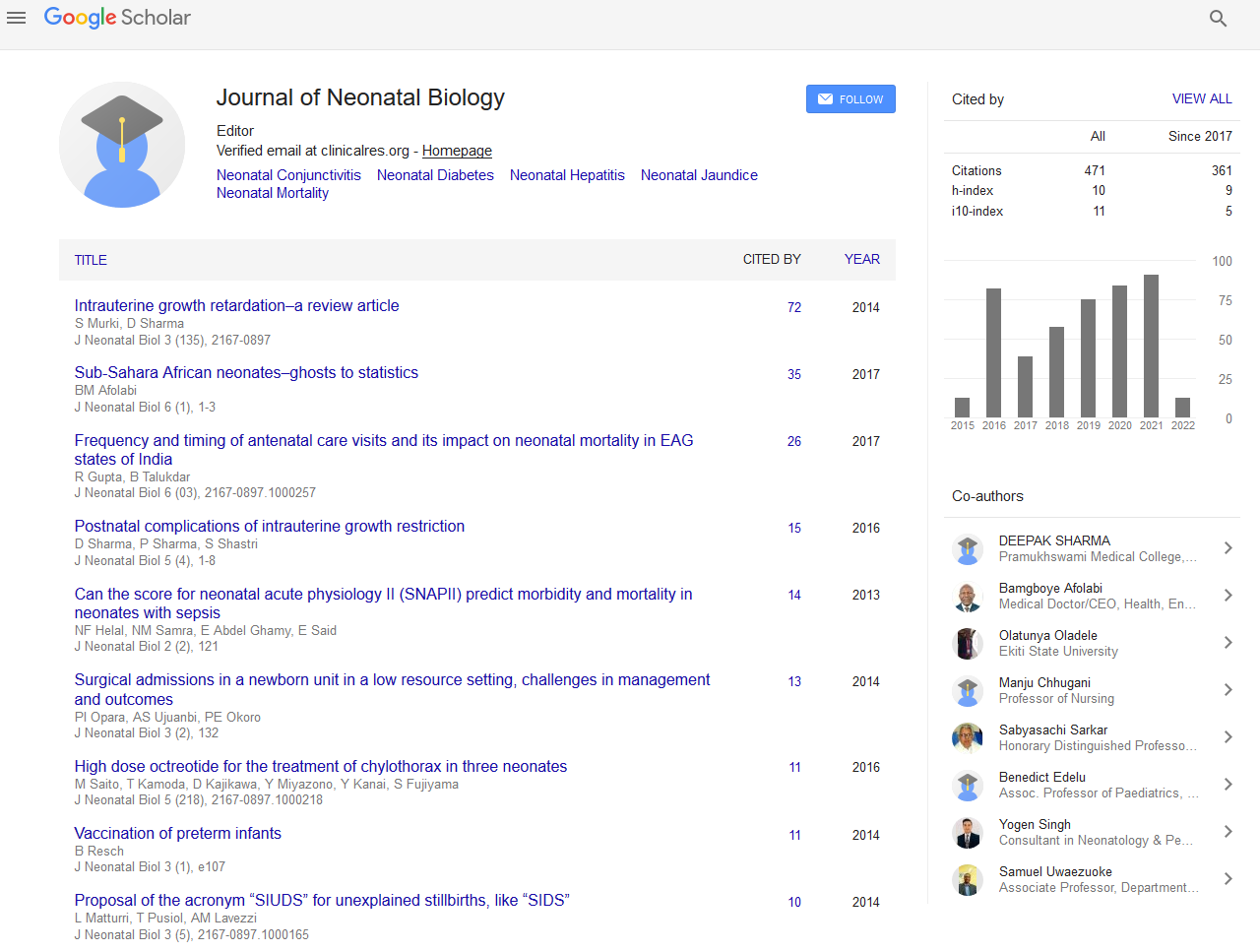PMC/PubMed Indexed Articles
Indexed In
- Genamics JournalSeek
- RefSeek
- Hamdard University
- EBSCO A-Z
- OCLC- WorldCat
- Publons
- Geneva Foundation for Medical Education and Research
- Euro Pub
- Google Scholar
Useful Links
Share This Page
Journal Flyer

Open Access Journals
- Agri and Aquaculture
- Biochemistry
- Bioinformatics & Systems Biology
- Business & Management
- Chemistry
- Clinical Sciences
- Engineering
- Food & Nutrition
- General Science
- Genetics & Molecular Biology
- Immunology & Microbiology
- Medical Sciences
- Neuroscience & Psychology
- Nursing & Health Care
- Pharmaceutical Sciences
Quality improvement project in the use of medication in advance of intubations (Pre-medications) in a secondary and tertiary neonatal unit in North London
9th International Conference on Neonatology and Pediatric Neurology
November 28-30, 2016 Valencia, Spain
Antonia Hargadon Lowe
Imperial Health Care NHS Trust, UK
Scientific Tracks Abstracts: J Neonatal Biol
Abstract:
Accepted best practice for neonatal intubations now involves the use of medications beforehand (pre-medications); for both patient comfort and to increase chances of success. Time taken to prepare these medications is a barrier to their use. We implemented quality improvement strategies to reduce this time, and re-audited (following previous audits between 2009 and 2015). We instigated prescribing of pre-medications on admission to NICU, which was disseminated by consultants and reinforced regularly in order to change habit. Every nurse was questioned on what they felt caused delays. Unfortunately, staffing restraints prevented planned �??Intubation�?? simulations. Advanced emails, posters and regular reminders following intubations increased awareness. Data was collected from 1/5/15-1/8/15. Criteria measured were: %of patients with medications pre-prescribed; %of eligible patients receiving pre-medications; %of cases with drugs prepared in under 16 minutes (considered best practice). 19 intubations were recorded (6/19; emergencies). 79% of patients had medications pre-prescribed, 100% (vs. 95% last time) received pre-medications, and 53% (vs. 27%) took under 16 minutes, with a mean time of 19.4 (vs. 36) minutes. Nurses felt that the primary issue was lack of drug-checkers and suggested doctors being available for this. Increased awareness could have impacted on the demonstrable improvement, however the pre-prescribing will likely have contributed significantly; this was a successful quality improvement intervention. Therefore, we recommend the continued practice of prescribing on admission, along with doctors being drug-checkers if available. Future planning for new drug charts with specific pre-printed designated boxes is underway. With a full rota, real-time multi-disciplinary intubation simulations should occur repeatedly to have the widest impact.
Biography :
Antonia Hargadon Lowe has completed her primary medical qualification, BMBS, at Nottingham University in 2006 and then became a Member of the Royal College of Pediatrics and Child Health in 2011 after completing membership exams (MRCPCH). She has just completed a Master’s at Imperial College London in Pediatrics and Child Health, and is currently a PICU Trainee at Evelina Children’s Hospital, London.


